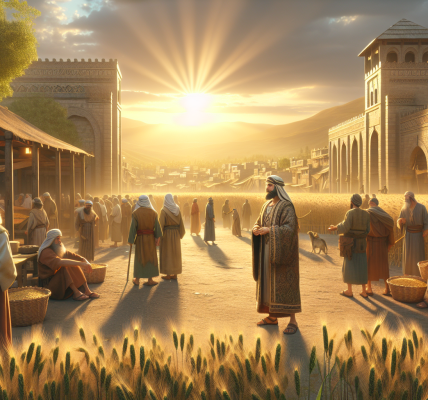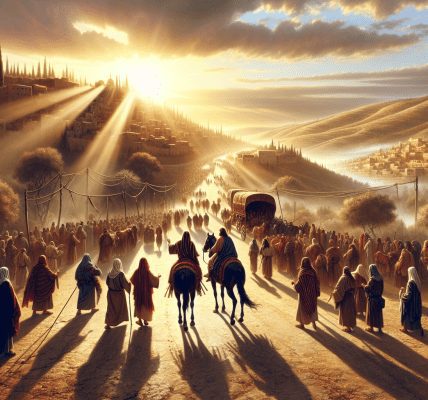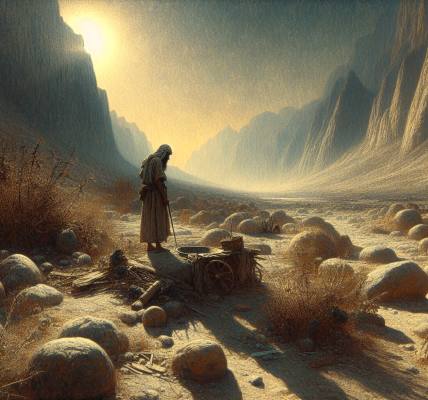**The Harvest of the Spirit: A Story of Bearing One Another’s Burdens**
The sun hung low over the city of Galatia, casting long shadows across the dusty streets where the believers gathered in small clusters. The air was thick with the scent of olive trees and the distant murmur of merchants closing their stalls for the evening. Among the faithful was a man named Lucius, a weaver by trade, whose hands were calloused from years of labor but whose heart had been softened by the gospel of Christ.
Lucius had once been a man burdened by the weight of the Law, striving endlessly to justify himself before God. But when the message of grace had reached his ears—preached by the apostle Paul himself—he had been set free. Yet now, whispers of division troubled the Galatian church. Some insisted that true faith required strict adherence to the old customs, while others, like Lucius, clung to the liberty found in Christ.
One evening, as the believers gathered in the home of a wealthy merchant named Demas, tensions simmered beneath the surface. A young convert named Elias, who had once been a zealous Pharisee, stood and declared, “Unless you are circumcised according to the Law of Moses, you cannot be saved!” His words struck like a hammer, and murmurs of agreement and dissent rippled through the room.
Lucius felt the weight of the moment. He remembered Paul’s words: *”Bear one another’s burdens, and so fulfill the law of Christ.”* Rising slowly, he spoke with quiet conviction. “Brothers, does not the Spirit teach us to walk in love? If Elias struggles with doubt, should we not gently restore him rather than argue?”
Silence fell. Then, an elderly woman named Miriam, her face lined with years of hardship, stood and placed a hand on Elias’s shoulder. “My son,” she said, “I too once believed salvation came by works. But Christ has carried my burdens—should we not do the same for one another?”
Elias’s eyes glistened with unshed tears. The hardness in his expression softened as he whispered, “I… I have been proud.”
Just then, a commotion arose at the door. A man named Gaius, known for his arrogance and love of wealth, stumbled in, his fine robes torn and his face streaked with dirt. He had been robbed on the road, his goods stolen, his pride shattered. The room tensed—many remembered how Gaius had mocked their simplicity, boasting that his wealth proved God’s favor.
But before scorn could take root, a burly fisherman named Silas stepped forward. Without a word, he draped his own cloak over Gaius’s trembling shoulders and pressed a loaf of bread into his hands. “Come, brother,” Silas rumbled. “You are home now.”
Gaius wept openly, his arrogance broken. “I… I thought I needed no one,” he confessed.
Lucius smiled. *”Let us not grow weary in doing good,”* he reminded them all, *”for in due season we shall reap, if we do not give up.”*
As the night deepened, the believers shared what little they had—food, clothing, prayers. The divisions of the day melted away in the warmth of love. Even Elias, humbled, broke bread with those he had once judged.
And so, the Galatian church learned the true harvest of the Spirit—not in rituals or pride, but in bearing burdens, sowing love, and reaping eternal life. For as the apostle had written: *”Whatever a man sows, that he will also reap.”*
And in that humble house, the seeds of grace blossomed anew.




